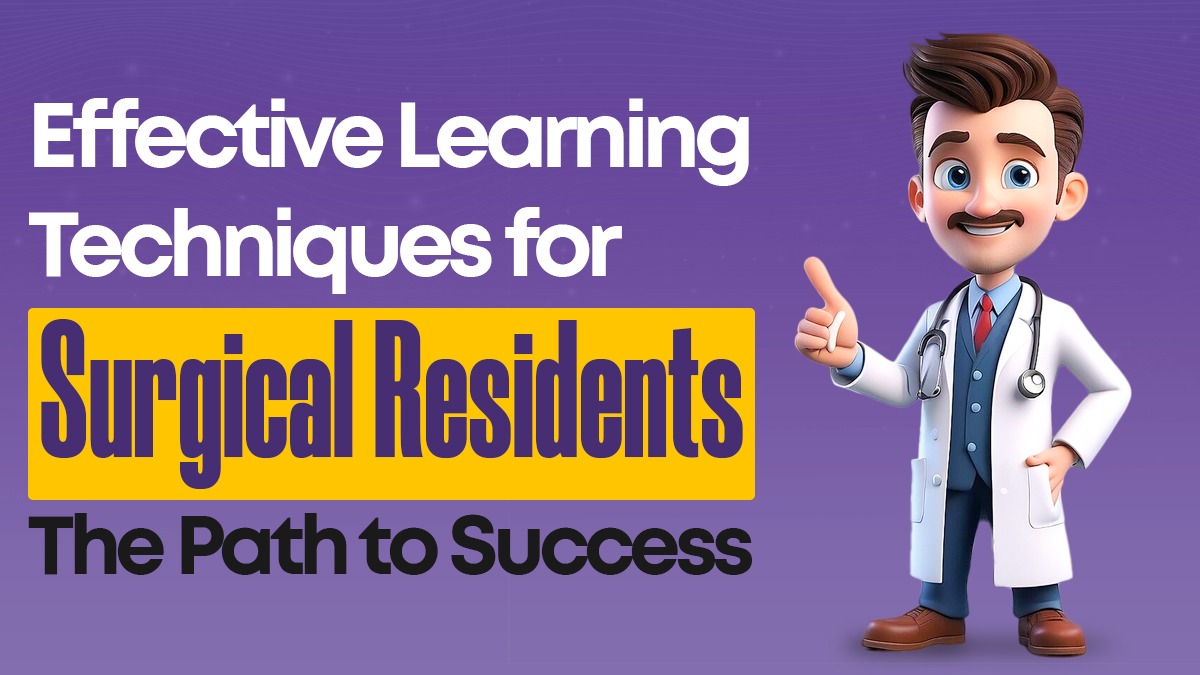Estimated reading time: 3 minutes
A surgical residency is a completely new journey for junior residents. This is the stage at which junior residents can complete themselves and nurture their skills in the professional world. Conceptual Surgery is an ideal choice for surgical residents since it is the most rewarding opportunity for them in terms of personal growth, learning, and professional development. Continue reading this blog to know why Conceptual Surgery should be a first choice.
1. Comprehensive HQ Videos and Training Program
It offers training programs that will provide a firm foundation for surgical residents. Whether you are a first-year resident or are continuing your journey into the world of general surgery residency, you will have access to different surgical procedures, clinical scenarios, and cutting-edge techniques. That would make Conceptual Surgery one of the best general surgery residency platforms available today.
2. Expert Mentorship and Collaborative Learning
To become an effective resident in general surgery, one needs mentorship from the very experienced. Conceptual Surgery provides qualified and experienced surgeons for a JR as mentors who offer useful feedback and support on their journey throughout the surgical residency. More importantly, the cooperative learning environment of this setting also fosters peer-to-peer interaction so that the surgery residents may learn from the experiences of their peers.
3. Specialty Resources for Surgical Residency Programs
Becoming a proficient resident in general surgery requires guidance from expert professionals. Conceptual Surgery provides its resources depending on what you need for your program. From basic surgical tricks to rehearsal of complicated procedures, our platform throws light on residents’ peculiar requirements in general surgery. These customizations equip you to maybe always stay a step ahead in your training.
4. Exclusive Study Material and Books
Conceptual Surgery not only provides lectures but also provides a Set of 2 books, Clinical Examination of Surgery and Surgery Q Bank Multiple Choice Question Bank. These exclusive books are crafted by the experienced faculty of Conceptual Surgery, keeping in mind the needs and requirements of surgery residents. The set of two books is the complete package and is available only for the premium subscribers of Conceptual Surgery.
Click Here: To have a look at these exclusive Surgery books.
4. Career Path Blessings
With success in surgery, a solid foundation should begin. Conceptual Surgery believes to fit right in, it would help indeed in your general surgery residency. Whether it is availing skill development, clearing board-certifying exams, or moving into management of a medical practice, we shall pave the way for you.
5. Commitments for Surgical Residency
Conceptual Surgery helps you make yourself better. It nourishes the evidence-based practice of surgical education, innovative pedagogic approaches, and interpersonal and collegial support that our platform provides you in striving during your surgical residency. It’s no surprise that residents in general surgery and surgical residency programs trust Conceptual Surgery worldwide.
So why Conceptual Surgery?
If you are a new JR who is entering the world of surgical residency, Conceptual Surgery has for you:
- Complete training modules phrased for general surgery residency.
- Involved in furthering health information technology going into it with medical practice management.
- Mentorship and team spirit learning context by experts.
- Uncommon resources for you as a surgical residency program.
- Career backers to develop you toward your goals.
Joining Conceptual Surgery will not only be one more step in your training journey but also an investment in your future endeavours. As one of the leading platforms of general surgery residency, we are committed to forming future generations of surgeons. Jump in today and join us in revolutionizing your residency!




